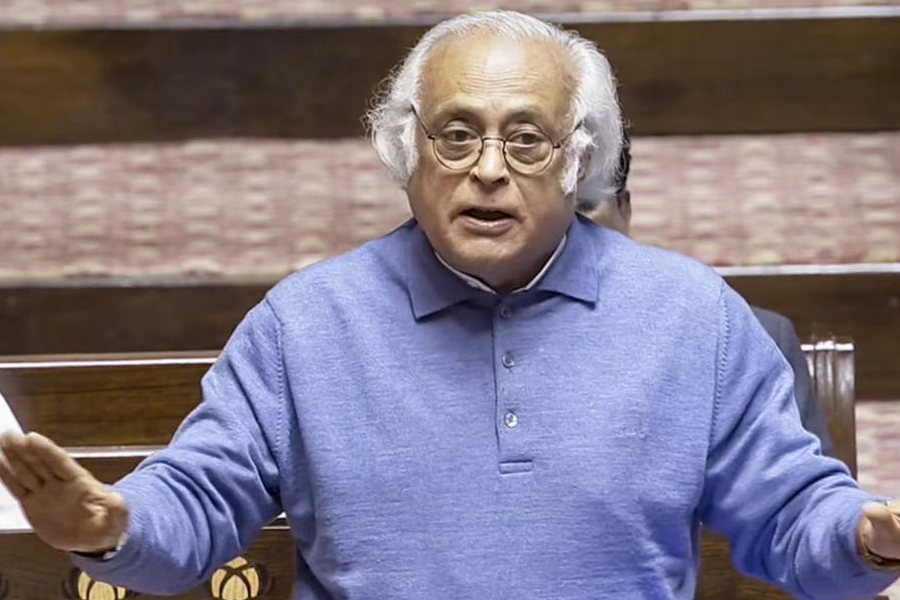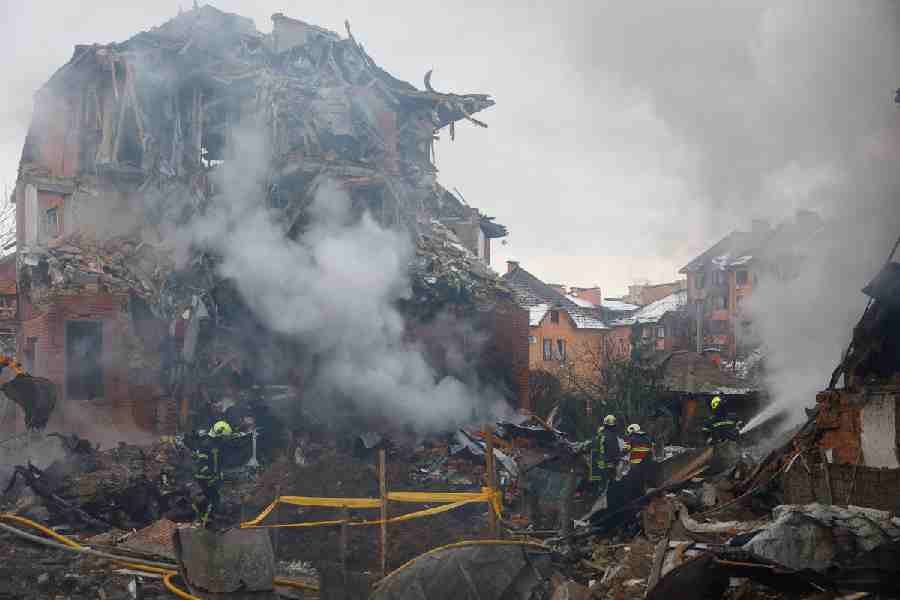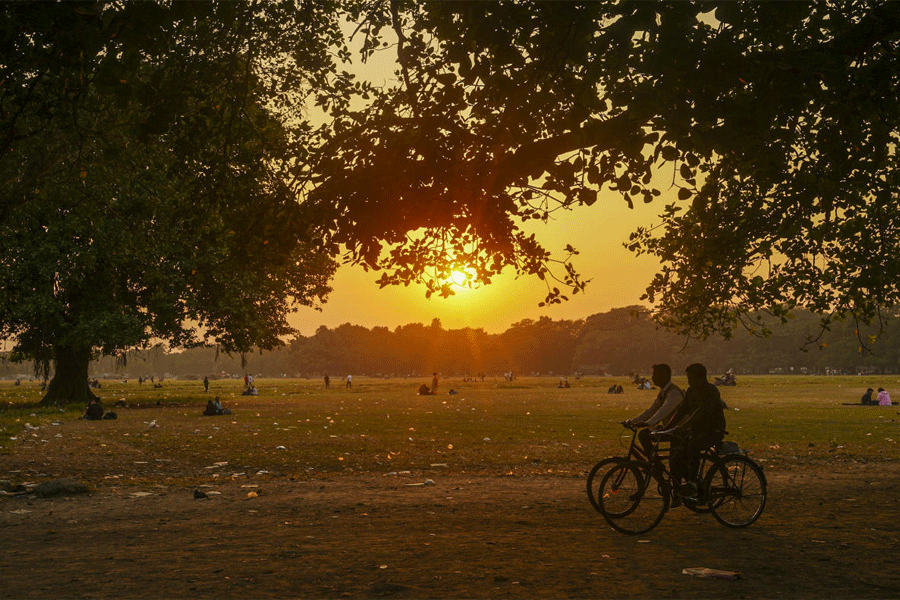 |
| Pheiroijam Parijat Singh at Lamlai in Imphal East. Picture by Eastern Projections |
Imphal, Feb. 5: In a state known for personality-centric politics and political affiliations that sometimes change with the weather, sticking to ideology is seen as the equivalent of hara-kiri.
Pheiroijam Parijat Singh, minister for agriculture and art and culture in the Okram Ibobi Singh government, and his party, the CPI, are exceptions. Even when the CPI drew a blank in the 2000 elections, Parijat Singh and his aides continued their organisational work and made a comeback in the 2002 polls with five seats.
The veteran Leftist is justifiably proud of the fact that his flock has been together through good and bad times. “No party in Manipur, including the Congress, has ever been able to entice any of our MLAs to its fold. Our ideology and principles have always been supreme,” Parijat Singh reminds anybody who raises the topic of political loyalty.
Not surprisingly, the 65-year-old minister’s rise in Manipur politics has run parallel with the growth of the CPI. The party struck roots in the state through the anti-zamindari movements launched by Jananeta Irwat Singh (1896-1951), a royal family scion who had fought against his relative, Maharaj Churachand, for people’s rights.
“The growth of the CPI in Manipur is the fruit of Jananeta Irwat’s struggle and sacrifice. He joined the CPI in 1946,” informs Parijat Singh, taking time off his hectic election campaign.
But for all the hard work done by Jananeta Irwat and those like Parijat Singh, the CPI’s circle of influence has remained restricted to the valley.
The party’s highest electoral tally ever is six, achieved way back in 1974.
Another source of frustration has been the failure of the Left parties to gel like they have done in another northeastern state, Tripura.
“We still have these problems but we are trying to overcome them. For the first time, we have fielded four candidates in the reserved constituencies of Churachandpur and Chandel districts and are contesting 24 seats in all,” Parijat Singh points out.
Relaxing at his sprawling country home at Lamlay in Imphal East district later in the day, he reflects on his long journey in politics and the possibilities of the future. “I joined the CPI in the ‘year of the split’ — 1964 — after completing my education in Imphal and Guwahati. I have been elected from my home constituency, Lamlai, five times and become a minister on two occasions, 1990 and 2002. I will win this time, too,” he says.
Parijat Singh is pitted against Kh. Ibomcha Singh of the Nationalist Congress Party and Ksh Biren of the Congress in a triangular contest.
Ask him whether the Congress-led Secular Progressive Front will get a second term in office and the CPI veteran is non-committal. But he does mention that the CPI will play an important role in cobbling up a viable coalition.
“In Manipur, alliances have always been formed only after fractured poll verdicts. This has been the reality till now and we have to accept it. But rest assured that another coalition will be in place to form the next government,” he says.
On the positive side, the CPI’s stand on the major poll issues is the same as that of other parties.
“Manipur’s territorial integrity is not negotiable and the Armed Forces (Special Powers) Act should be repealed,” says Parijat Singh.
As for the Tipaimukh dam, the CPI wants a committee of experts to be constituted after the elections to study the possible consequences.











